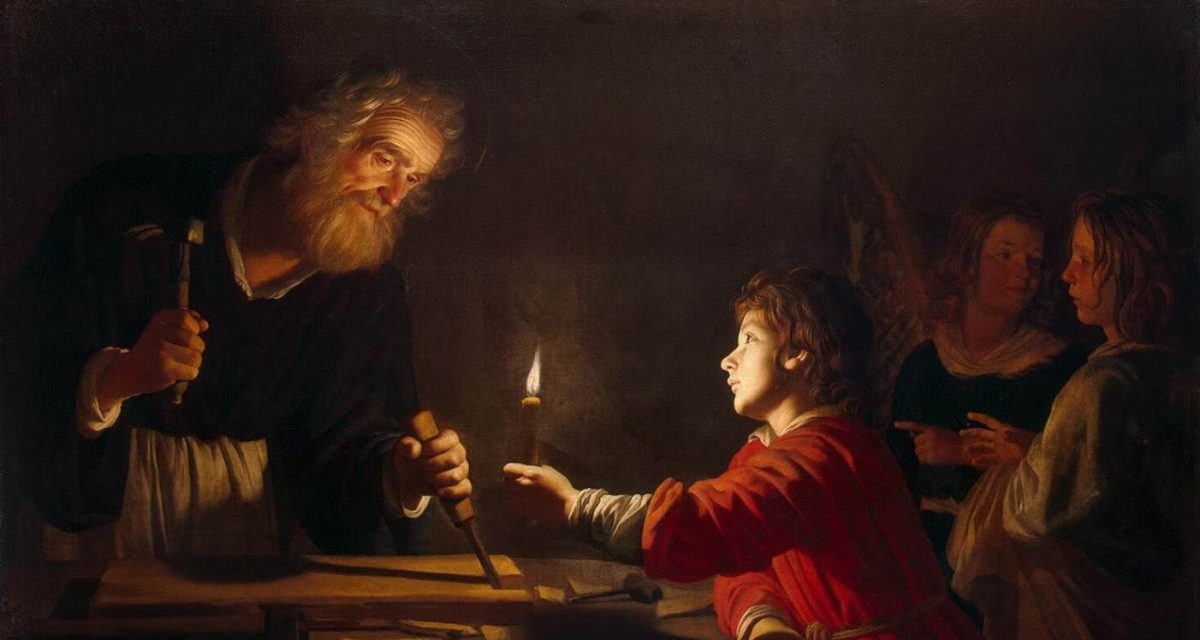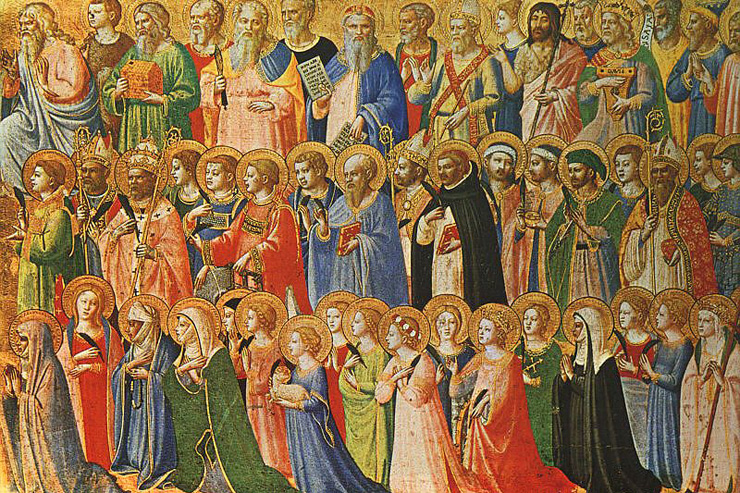“For 91% of Jesus’ life, he was living quietly with Mary and Joseph…. This wasn’t just him killing time until his real work could start.”
Due to the cycle of the liturgical calendar, which speeds us along from the birth of Jesus to his three-fold theophany in the feasts of the Epiphany and His Baptism and this Sunday’s Gospel of the wedding feast of Cana, we often miss meditating on his hidden life.
Perhaps a homily for the Feast of the Holy Family may touch on it, but our minds are still on the mysteries of Christmas. And so we wait for him during Advent, we celebrate his birth at Christmas, and then suddenly we are thinking about his public ministry and perhaps even preparing for his Passion.
When we think of Jesus’ life, we naturally think of the big things. It’s natural that our feasts revolve around the big moments, the theophanies, the Paschal Mystery. But there is more to the mysteries of Christ’s life than the Passion and Resurrection. The mystery of redemption is not just at work in his death and resurrection. Rather, the mystery of the Redemption is at work throughout his life, including “in his hidden life which by his submission atones for our disobedience” (CCC 517). He is saving us not just on the Cross, but also at his workbench.
For 91% of Jesus’ life, he was living quietly with Mary and Joseph. The Holy Family was living a normal Nazarene life. Think about that. Most of his life was not spent preaching and doing miracles. It was spent as an obedient son to Mary and Joseph. When he at last goes out in his public ministry, he is simply known by his work as a carpenter and his parents (Mark 6:3, Mt 13:55). Why? Because that’s what he was doing for years. For years, nothing had set him apart. Even though he was God, he quietly worked in Nazareth. He built things with wood and stone. He made money to support his mother.
For most of Jesus’ life, he lived in an unknown little town and worked as a laborer. He lived as a son of mother and a father. He went to school. And this wasn’t just him shooting the breeze until he was old enough to start his public ministry. This wasn’t just him killing time until his real work could start. This time was part of his redeeming work.
Redemption comes to us above all in the Cross, but he didn’t start at that moment. He also redeemed us through his hidden life. And by doing this, he sanctified work. Work was already a good thing created by God. If you read Genesis, you’ll notice that work is not the result the fall; it is the vocation of even prelapsarian Adam. Christ reminds us of its goodness and redeems us through his work, so that we can join ours to his and thus be sanctified by it.
The Second Vatican Council reminds us, “through labor offered to God man is associated with the redemptive work of Jesus Christ, who conferred an eminent dignity on labor when at Nazareth he worked with his own hands” (Gaudium et spes, 67).
As the excitement and joy of Christmas fade and the new year brings the routine and sometimes monotony of daily life, let us emulate the obedient carpenter’s son. Take time to meditate on this quiet, hidden life of Christ. Think about his obedience, humility, and love. What does he want to say to you through the hidden moments of his life? What can we learn from this oft-forgotten time? We should recommit ourselves to our work, whether that work is in the home, behind a computer, or with our hands. Let us offer up inconveniences, finish projects well, mortify ourselves by being on time, and thus make our work a prayer of praise to him. Let us bring Christ into our offices, stores, and homes by allowing our daily work to sanctify us.
“Lord, give us your grace. Open the door to the workshop in Nazareth so that we may learn to contemplate you, together with your holy Mother Mary and the holy Patriarch St Joseph, whom I love and revere so dearly, the three of you dedicated to a life of work made holy. Then, Lord, our poor hearts will be enkindled, we shall seek you and find you in our daily work, which you want us to convert into a work of God, a labour of Love.” (St. Josemaria Escriva, Friends of God, 72)
Image: “Childhood of Christ” by Gerard van Honthorst | Public Domain via Wikimedia Commons
Please help spread the Gospel. Share Joannie’s post with family and friends on Facebook and other social media.
We are grateful for your support…
We welcome both one-time and monthly donations. A monthly subscriber giving just $10 a month will help cover the cost of operating Integrated Catholic Life for one day! Please help us bring enriching and inspiring Catholic content to readers around the world by giving today. Thank you and may God Bless you for supporting the work of Integrated Catholic Life!














